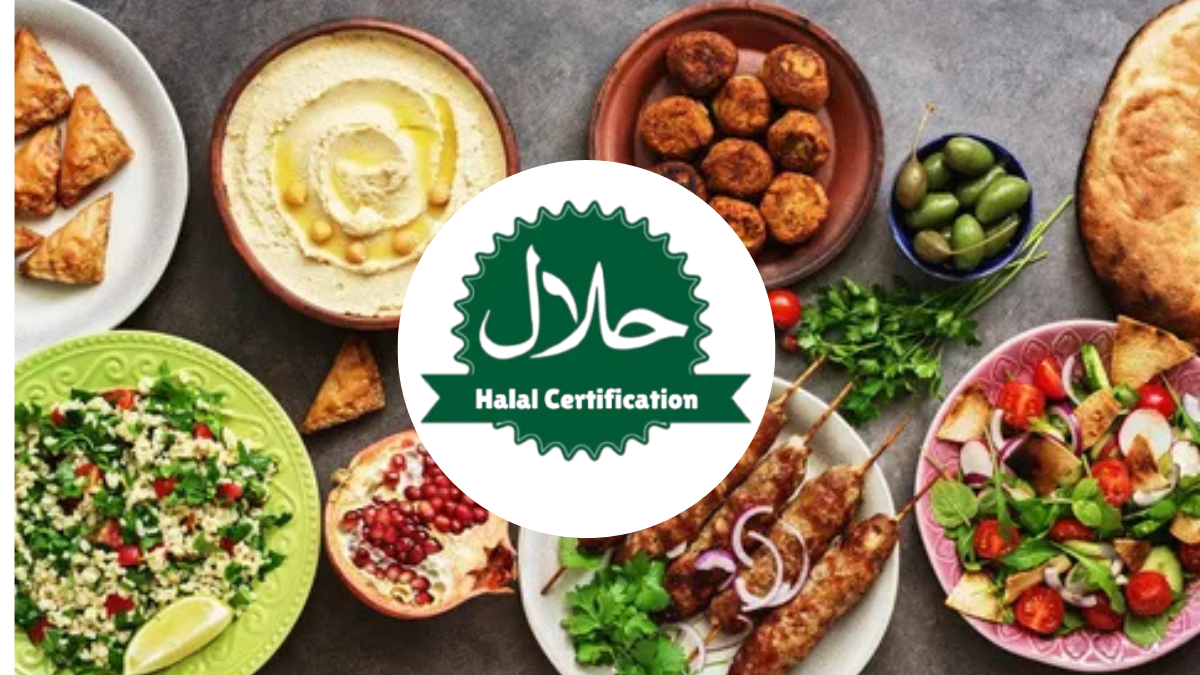Why Halal Certification is Important for Restaurants and Businesses in USA
Halal certification confirms that a product or service meets the requirements of Islamic law. For food businesses, especially restaurants, it ensures that the ingredients, preparation, handling, and storage follow halal standards. This certification is crucial for Muslim consumers who depend on it to make dietary choices that align with their faith.
Why Halal Certification Matters in the USA
With a growing Muslim population in the United States, halal-certified food is no longer a niche offering. Restaurants, food producers, and distributors are seeking halal certification to meet consumer demand, access new markets, and build trust.
According to Pew Research, the Muslim population in the USA is expected to grow steadily. As a result, halal food services are increasingly seen as essential—not optional.
Types of Halal Certification in the USA
1. International Halal Certification
This type of certification is recognized beyond US borders. It’s particularly important for food exporters and global restaurant chains. Certification from internationally accepted bodies can open doors in regions like the Middle East, Southeast Asia, and Europe.
2. USA-Specific Halal Certification
Local halal certification focuses on compliance with both Islamic principles and US food safety laws. It is ideal for restaurants and small to mid-sized food businesses that serve primarily domestic markets.
Halal Certification for Restaurants
Restaurants seeking halal certification must go through a thorough assessment. This includes:
- Ingredient Verification: Every item, from meat to sauces, must be halal-compliant.
- Food Preparation: The kitchen must have separate areas for halal and non-halal items, or be entirely halal.
- Staff Training: Employees need to be trained in halal handling practices.
- Slaughter Process (for meat-serving restaurants): All meat must be sourced from halal-certified suppliers who follow Islamic slaughter guidelines.
Obtaining a halal certificate for a restaurant builds credibility, helps attract Muslim diners, and can improve customer retention.
Steps to Get a Halal Certificate for a Restaurant
- Choose a Halal Certification Agency
- Apply for Certification
- Facility Inspection and Audit
- Compliance Training for Staff
- Receive the Halal Certificate
- Regular Renewal and Re-inspection
Recognized Halal Certification Agencies in the USA
1. Halal Watch International
Halal Watch is known for its strict compliance checks and transparency. It serves both local and international food businesses.
2. Islamic Services of America (ISA)
ISA is globally recognized and works with USDA and FDA regulations. Ideal for exporters and manufacturers.
3. IFANCA (Islamic Food and Nutrition Council of America)
One of the largest halal certifiers, IFANCA serves major food brands and is widely accepted across various countries.
Halal Certification Requirements in the USA
Each certification body may have slightly different criteria, but general requirements include:
- Documentation of Ingredients and Suppliers
- Clean and Segregated Food Handling Areas
- Proper Storage and Labeling
- Trained Personnel on Halal Compliance
- Halal Slaughter Certification (for meat suppliers)
Restaurants must maintain clear records, allow inspections, and renew their certification periodically.
What a Halal Certificate Includes
A valid halal certificate typically contains:
- Name and address of the certified business
- Certificate number
- Duration of validity
- Name of certifying agency
- List of certified products or services
- Authorized signature and seal
It’s often displayed prominently in a restaurant or food business to assure customers.
Tips for Choosing a Reliable Halal Certification Agency
- Check International Recognition: Especially important if you plan to export.
- Look for Transparency: Reliable agencies share their inspection process and criteria.
- Ask for References: Speak to other certified businesses.
- Confirm Accreditation: Ensure the agency is accredited by Islamic authorities or government-recognized bodies.
Cost of Halal Certification in the USA
The cost depends on:
- Business size
- Product range
- Type of certification (local vs. international)
- Frequency of inspection
Most agencies provide a custom quote based on your specific needs. While there’s an upfront cost, the long-term business benefits can far outweigh the investment.
Maintaining Your Halal Status
Halal certification isn’t a one-time task. To maintain it:
- Conduct regular internal audits
- Renew the certification as required
- Stay updated on ingredient sourcing
- Train new staff members on halal protocols
Non-compliance can lead to the suspension or cancellation of your certificate, damaging your reputation and customer trust.
Final Thoughts
Halal certification in the USA has become a mark of quality, transparency, and religious integrity. For restaurants and food businesses, it’s more than a label—it’s a promise to serve Muslim consumers ethically and respectfully. By choosing the right certification agency and maintaining high standards, businesses can thrive in a growing market segment.
Read more exciting blogs on thebizmagazine.com

